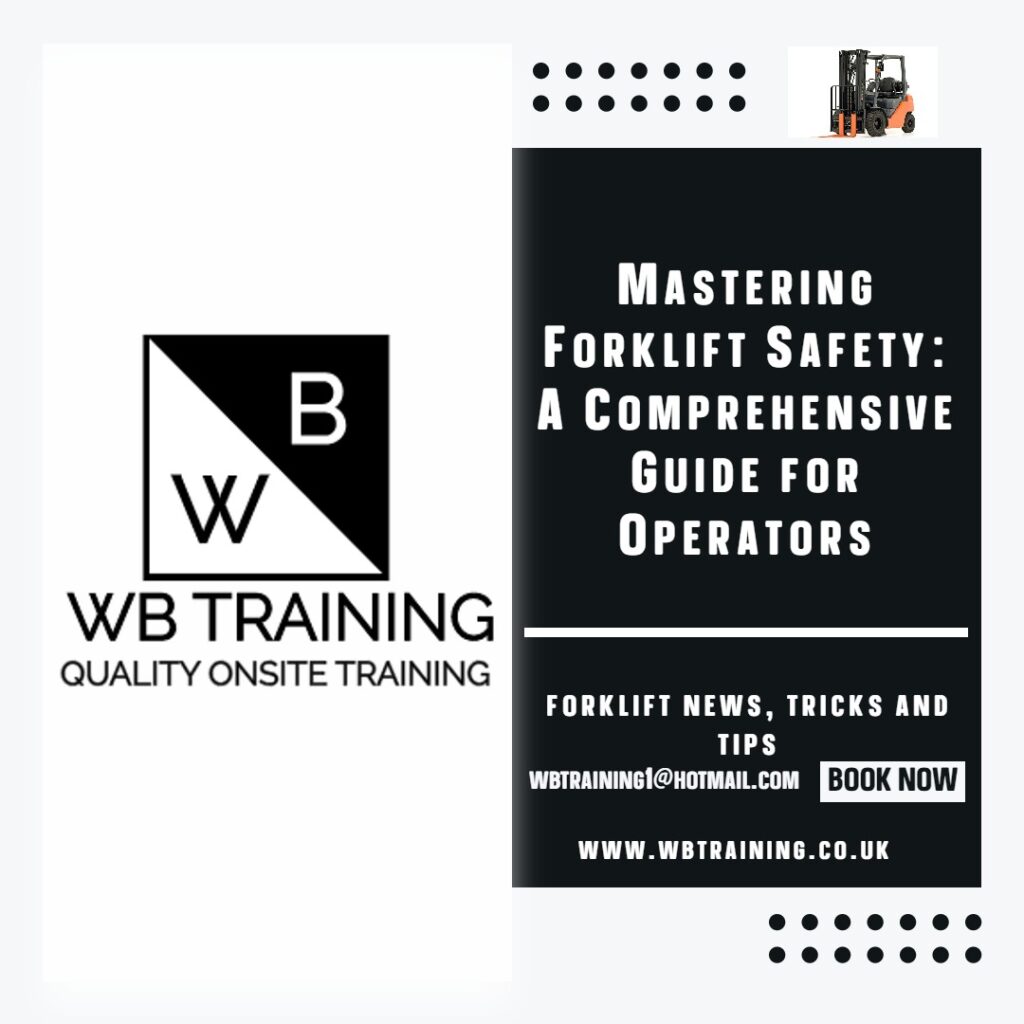Mastering Forklift Safety

In the bustling world of warehouses, distribution centers, and industrial facilities, forklifts serve as the backbone of operations, efficiently transporting goods and materials with precision and speed. However, with their immense utility comes inherent risks, making the mastery of forklift safety a paramount concern for operators. Whether you’re a seasoned professional or a novice embarking on your forklift journey, understanding and implementing safety protocols is essential for preventing accidents and ensuring a secure work environment. In this comprehensive guide, we’ll delve into the key principles and best practices of forklift safety, equipping operators with the knowledge and tools necessary to navigate their responsibilities with confidence and proficiency.
Importance of Forklift Safety
Forklifts are powerful machines capable of lifting heavy loads to significant heights, but they also pose serious risks if not operated properly. From potential collisions and tip-overs to falling objects and pedestrian accidents, the consequences of forklift accidents can be severe, resulting in injuries, property damage, and even loss of life. By prioritizing safety, operators not only protect themselves but also their colleagues, company assets, and overall productivity.
Pre-Operation Checks
Before embarking on any forklift task, operators must conduct thorough pre-operation checks to ensure the vehicle’s functionality and safety. These checks involve inspecting various components such as brakes, tires, steering, lights, and hydraulic systems. Any issues or anomalies discovered during the inspection should be promptly reported and addressed before proceeding with operation. By establishing a routine pre-operation checklist, operators can mitigate the risk of mechanical failures and ensure the safe performance of the forklift.
Proper Training and Certification
Operating a forklift requires more than just technical skills—it demands comprehensive training and certification to ensure competence and safety. Proper training programs should cover theoretical knowledge, practical skills, and hands-on experience under the guidance of qualified instructors. Operators must familiarize themselves with forklift controls, load capacities, stability principles, and safe operating procedures. Additionally, obtaining certification from accredited organizations validates an operator’s competency and adherence to industry standards.
Safe Operating Practices
During forklift operation, adherence to safe practices is imperative to minimize risks and prevent accidents. Operators should always wear appropriate personal protective equipment (PPE) such as helmets, high-visibility vests, and steel-toed boots to safeguard against potential hazards. Maintaining clear visibility by keeping the load low and driving in reverse when obstructed ensures better maneuverability and reduces the risk of collisions. Furthermore, operators should adhere to designated speed limits, avoid abrupt stops or turns, and maintain a safe distance from pedestrians and other equipment.
Continuous Training and Improvement
Forklift safety is an ongoing journey that requires continuous learning and improvement. Operators should stay informed about updates to safety regulations, technological advancements in forklift design, and emerging best practices in the industry. Participating in refresher training courses, safety seminars, and regular safety meetings fosters a culture of continuous improvement and reinforces the importance of prioritizing safety in daily operations.
Conclusion
Mastering forklift safety is not just a regulatory requirement—it’s a moral obligation to ensure the well-being of oneself and others in the workplace. By understanding the importance of safety, conducting thorough pre-operation checks, obtaining proper training and certification, adhering to safe operating practices, and committing to continuous improvement, operators can navigate their forklift responsibilities with confidence, competence, and above all, safety. Together, let us strive to create a workplace culture where safety is ingrained in every aspect of forklift operation, fostering a secure and productive environment for all.
